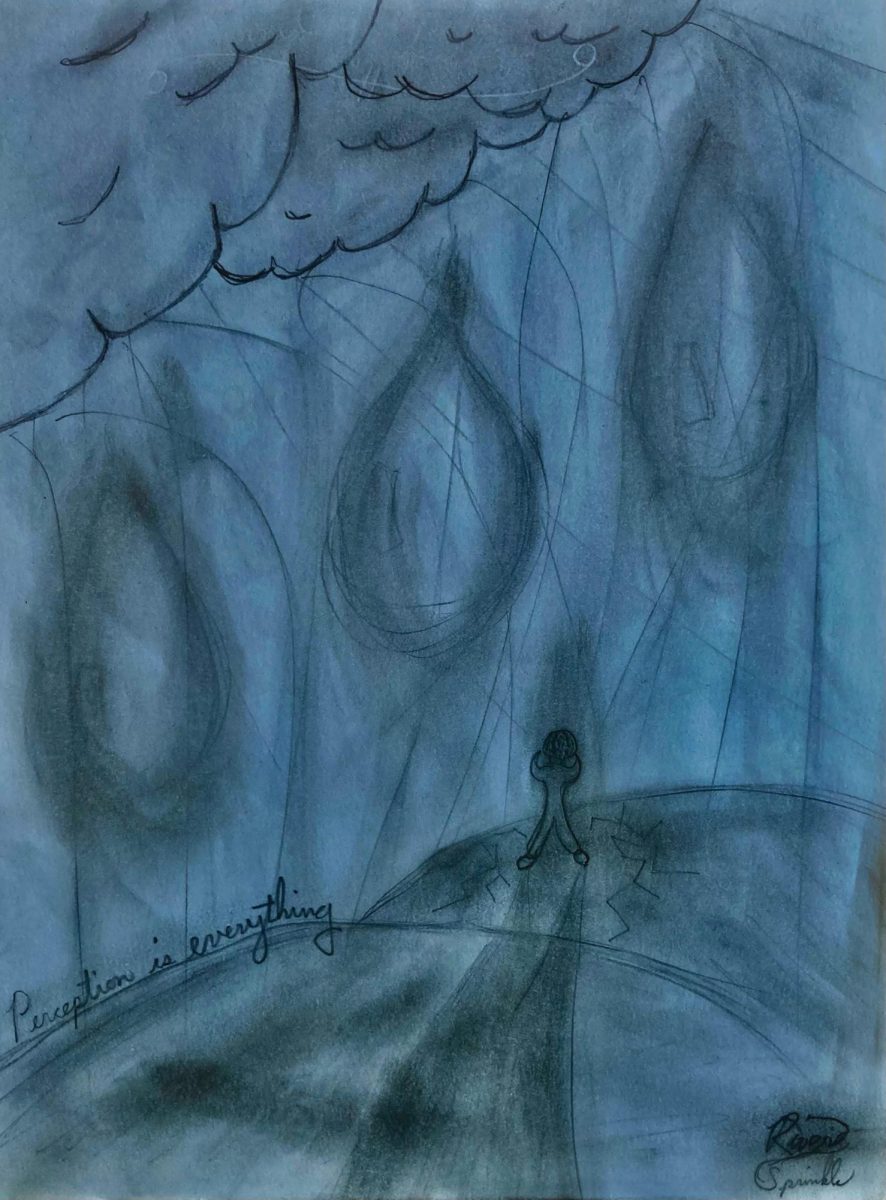Humor, Law Interact in Several Ways: Parodies, Funny Laws, Unnecessary Censorship
During her lecture, Professor Laura Little gave three main themes that explain the relationship between comedy and the law.
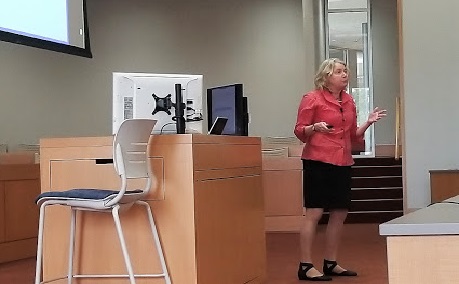
Professor Laura Little discusses her new book, “Guilty Pleasures: Comedy and Law in America.”
September 18, 2018
Professor Laura Little explained various ways humor and the law interact with one another based on the three main sections of her new book, “Guilty Pleasures: Comedy and Law in America.”
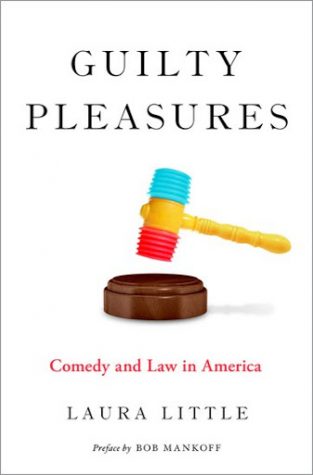
The lecture “Humor and the Law” took place on Thursday, Sept. 13, from 12:15-1:15 p.m. in the McDowell Law Center Brennan Courtroom 180 and was free to the public.
Matthew Wilson, Professor of Law and former President of The University of Akron, began the lecture by introducing Little and explaining their common history in the education of law.
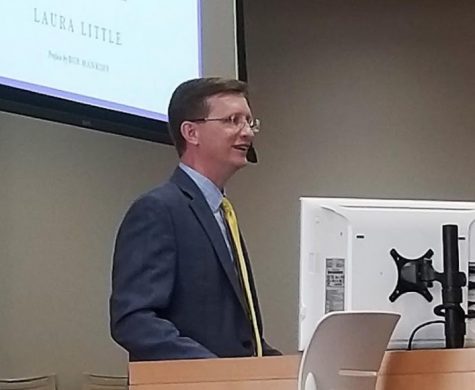
Matthew Wilson, former UA President and Professor of Law, introduces Professor Laura Little and the topic of her lecture in the McDowell Law Center Brennan Courtroom 180.
After introductions, Little spoke on the background of her interest in the subject and how her book is a result of several years in researching the various ways comedy and the law interact within the U.S. legal system.
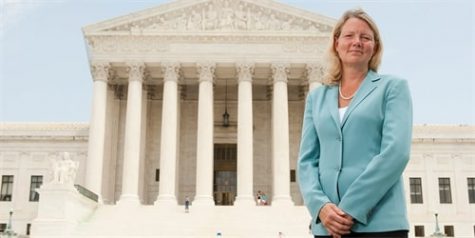
The lecture had been broken down into three main portions, each a different angle on the interactions between comedy and the law; similar to how Little’s book is written.
Throughout the lecture, Little used several examples from her research to show the relationship between the law and comedy. Some of these include videos on unnecessary censorship, funny comic strips about judges and court cases pertaining to humor.
During the first section of the lecture, Little explained the law’s effects on humor and gave various examples from her research.
This specifically pertains to the types of humor either protected or criticized by courts and how popular humor is influenced by the law, Little said.
“There are certain types of jokes that courts protect and other types of jokes that courts tend to condemn,” Little said. “A good example is parody: particularly as we see parody in the context of trademark.”
With the case of trademark and parody, Little said the courts must examine if there is a possibility of confusion among consumers in regards to whether or not the parody could truly be marketed.
One example of how parodies and trademarks are examined within the courts is the case of “The North Face vs. The South Butt.”
One idea that Little explained is how courts must examine humor’s protection under the Constitution.
“When talking about a joke, you are talking about communication. And that implicates an important part of our Constitution: the First Amendment,” Little said.
In the second portion of the lecture, Little described humor in the law. This specifically pertains to how humorous elements may be found in different texts of the law or how judges, lawyers and juries may use humor in different cases.

“My example comes from U.S. Code, which provides that whoever possesses a switchblade shall be fined a certain amount of money or a certain amount of time in prison… except in certain instances,” Little said.
The exception Little gave during her lecture had been from U.S. Code Title 15 Commerce and Trade Chapter 29 § 1244, which states the ban on switchblades does not pertain to “… any individual who has only one arm.”
See more examples of laws that have humorous elements to them.
The last section of Little’s lecture went over examples of humor about the law. This includes jokes about judges, legal proceedings, juries and lawyers.
However, Little said she doesn’t particularly enjoy lawyer jokes because she does not find them funny. What Little does find interesting about lawyer jokes is what they show about society’s feelings towards lawyers.
One example of a lawyer joke that Little gave goes as follows: How can you tell a lawyer is lying? Her lips are moving.
Another example of humor about the law Little gave is the idea of unnecessary censorship. By adding bits of censorship in places where it is not needed, humor is created and therefore indicating a joke about censorship in general.
Several late-night comedians have played with the idea of unnecessary censorship.
“I think this is very curious because in our society, censorship is not something we celebrate,” Little said. “But this is getting a kick out of censorship.”
The overall idea from Little’s lecture is humor and the law will always influence each other in the U.S. and their relationship is something that courts will continually have to examine.
“I want to continue this study on humor,” Little said. “But please know I understand that humor is very serious and… too much analysis, as a matter of fact, kills it similar to when you kill a frog as you are dissecting it.”






